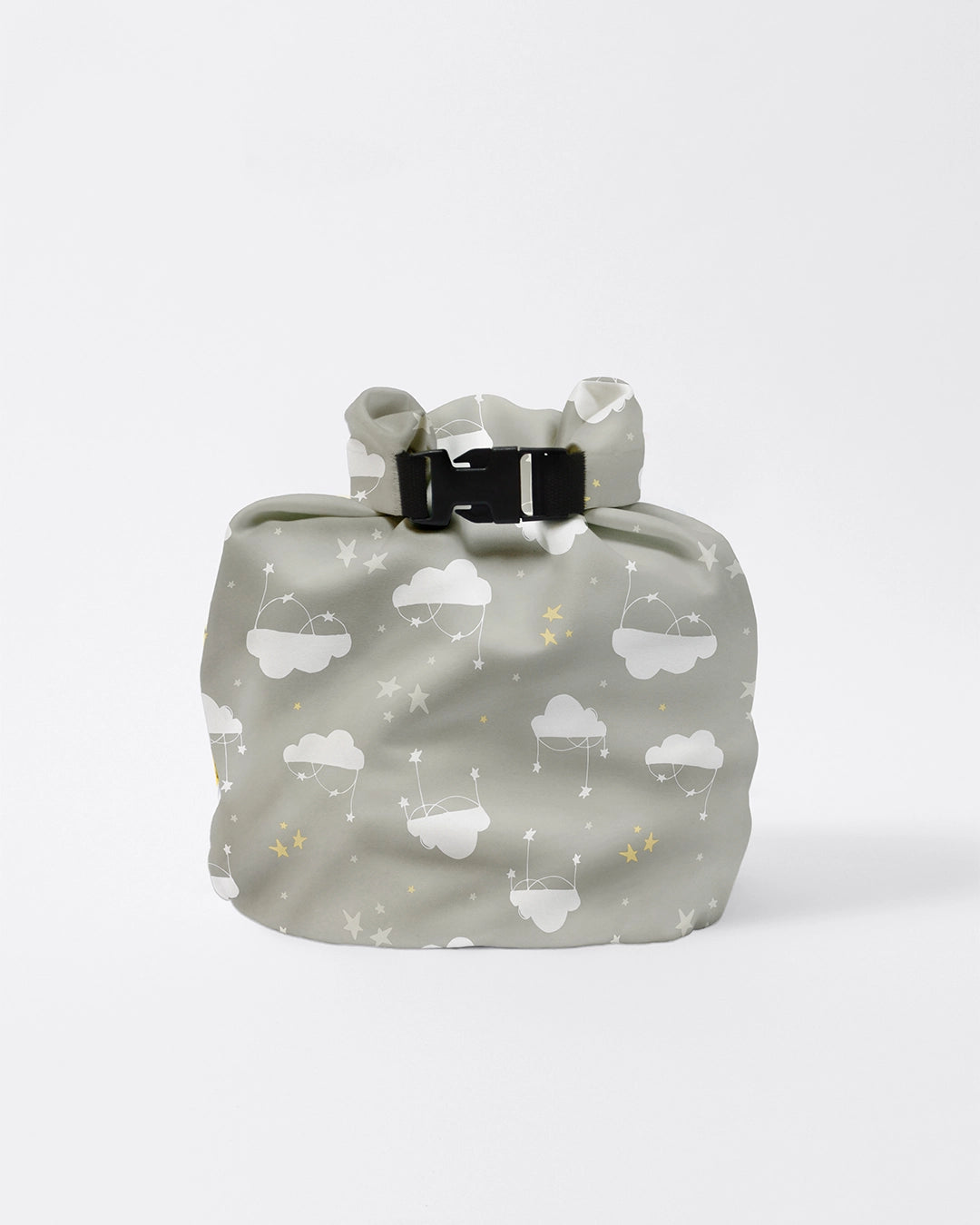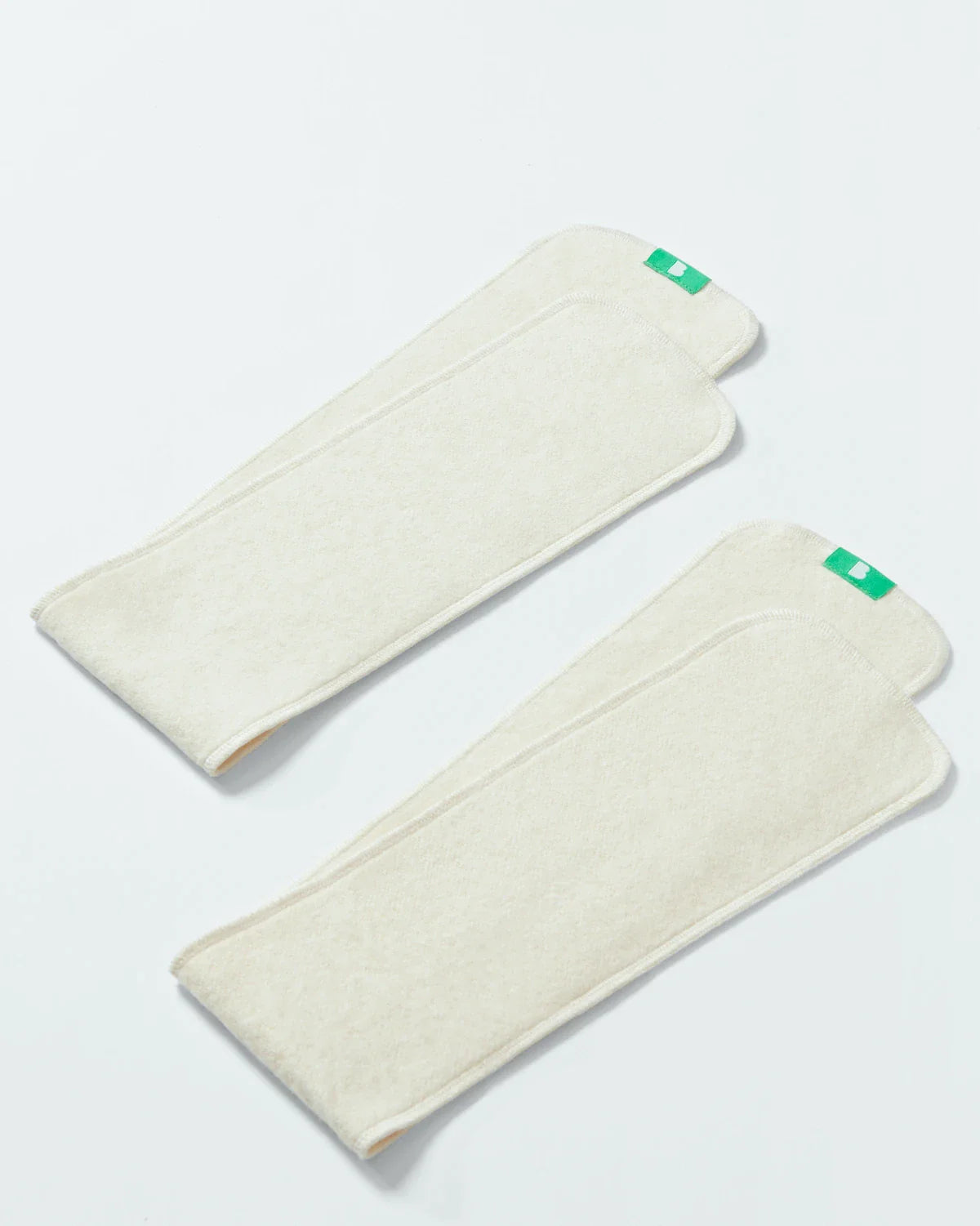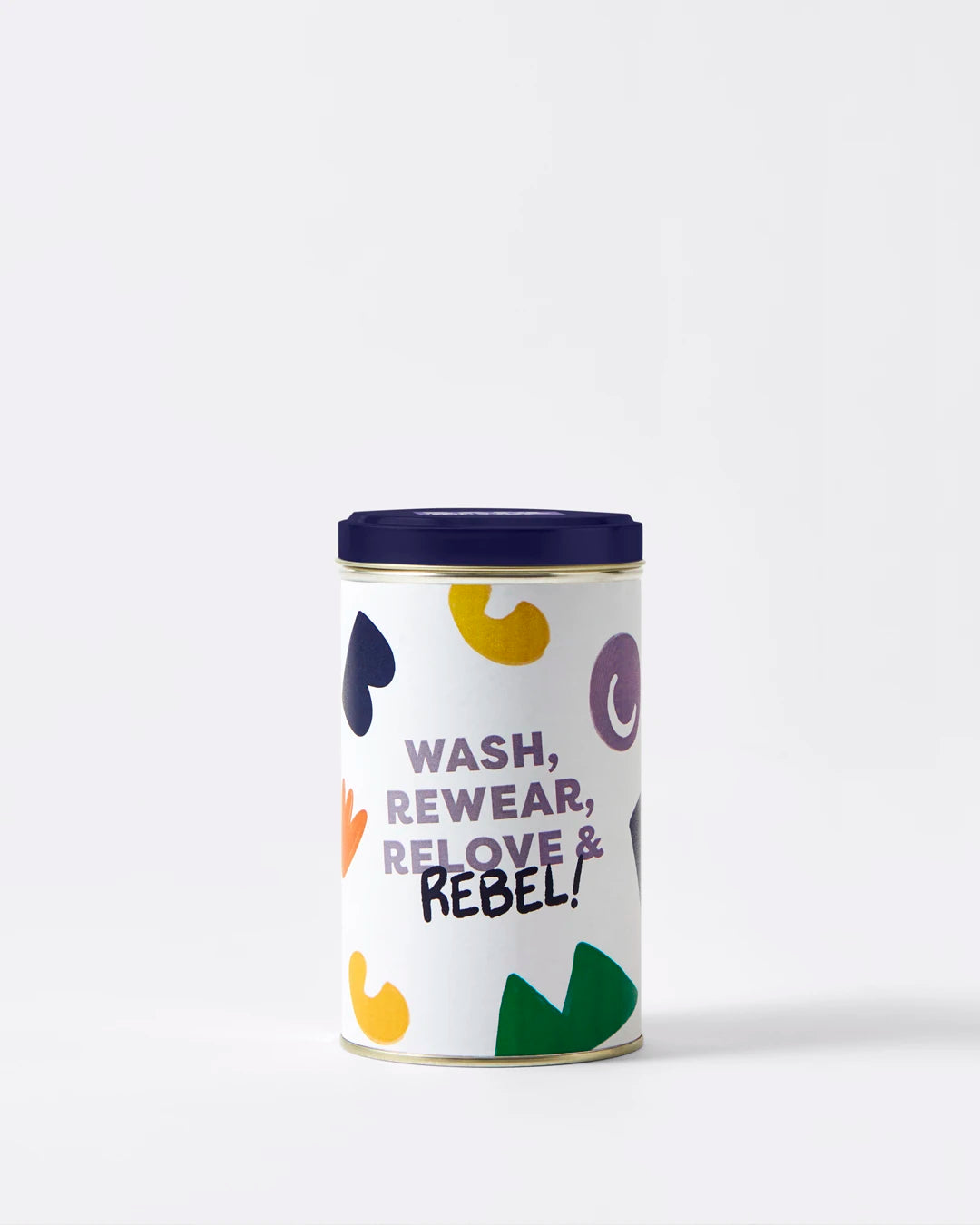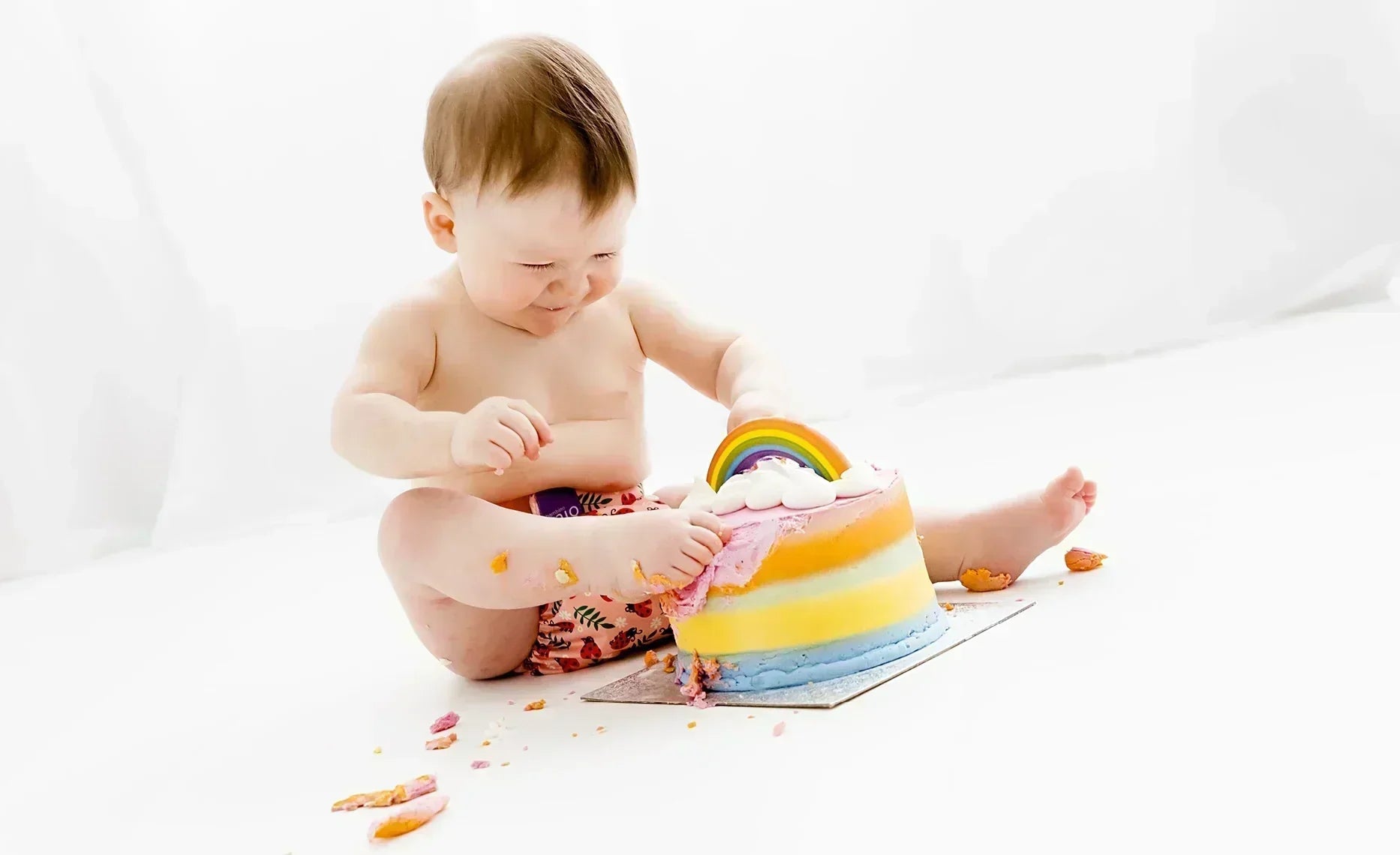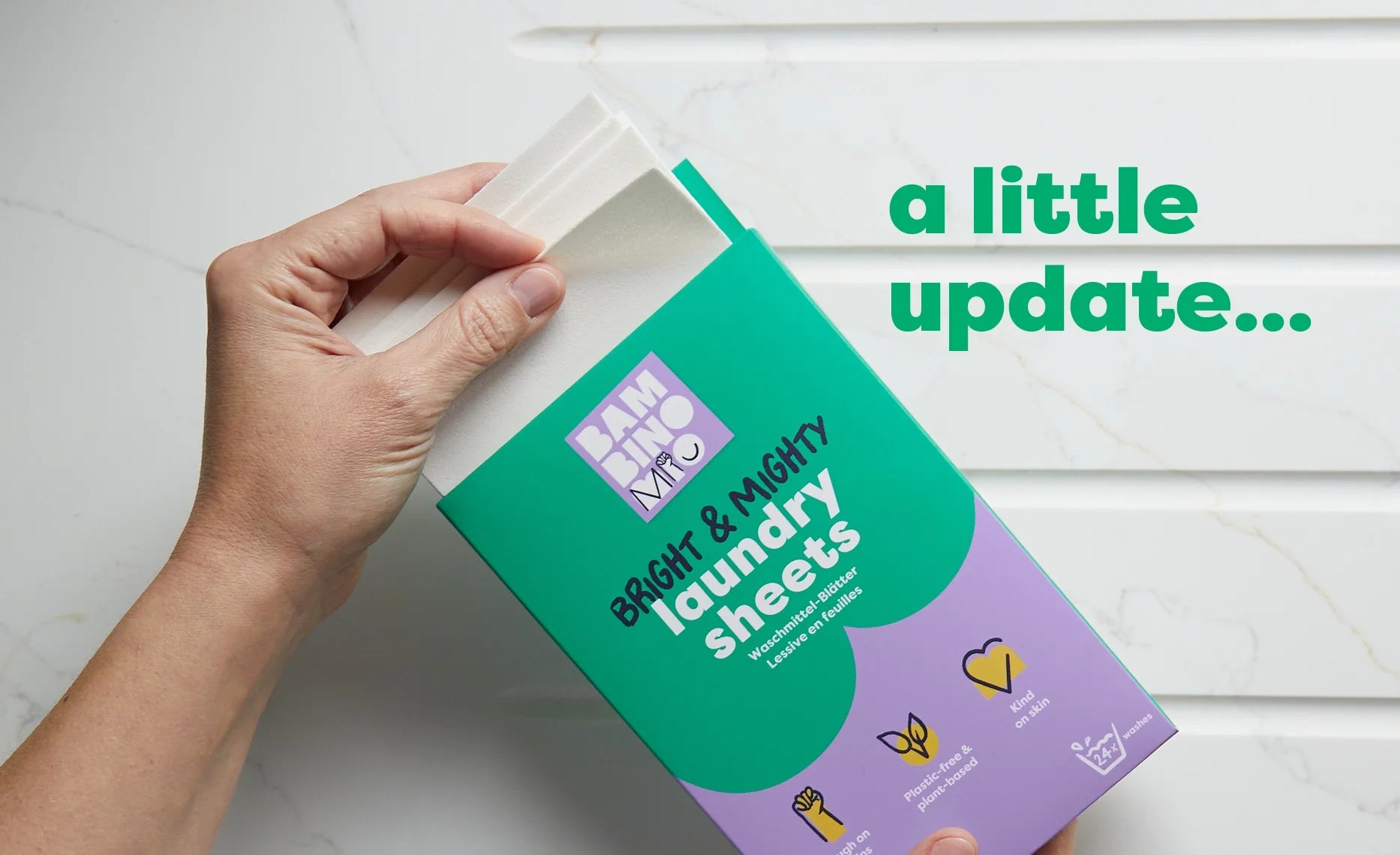Legumes in a Balanced Diet
Share Options
- Bambino Mio
- 27 / 09 / 2023

For your attention: The nutritional information within this article is intended solely for general informational purposes. It is not to be considered as a replacement for tailored medical advice from a certified healthcare professional. It is imperative to consult with your paediatrician or a qualified medical expert before introducing new food items such as fish or nuts into your infant's dietary regimen, especially if there are pre-existing health concerns or a familial history of allergies.
Inside this Article:
- When can I introduce beans to my baby?
- Why are legumes a good choice for babies?
- What are the benefits of adding legumes to my baby’s diet?
- Baby-friendly legumes
- Keep things simple
- I’ve heard beans have to be cooked really well, why is this?
- Can you use legumes in baby-led weaning?
- Are there any downsides to including legumes in my baby’s diet?
- Citations and References
Legumes - beans and pulses - are well-known for being incredibly nutritious and versatile. They’re rich in protein and fibre, as well as folate and magnesium.
You might wonder, however, if they’re good for your baby and if so, when is the best time to introduce beans and legumes to your baby.
When can I introduce beans to my baby?
You can start to offer foods other than milk to your baby when they’re around six months old. Once your baby reaches the age of six months, they won’t be getting all of the nutrients they need from milk on its own, so it’s weaning time (1).
Six months of age is also the age at which your baby is able to deal with textures and tastes other than just milk. Until your baby is 12 months old, though, milk should still be their main source of calories (2).
Why are legumes a good choice for babies?
Beans and pulses are a good food choice for babies because they’re:
- Soft
- Full of nutrients
- Fairly bland in taste
- Easy to puree
- Easy to mix in with other, stronger flavoured foods
You can add small amounts of legumes to your baby’s diet when they’re between seven and 10 months old.
What are the benefits of adding legumes to my baby’s diet?
Legumes are a great source of concentrated nutrients and plant protein, as well as fibre, which can help to promote good gut and bowel health. The particular fibre contained in legumes helps to support a healthy and diverse population of gut bacteria (3).
As well as the protein and the fibre, legumes are also full of important nutrients which are essential for for your baby’s health, growth and development, such as:
- iron
- magnesium
- potassium
- calcium
- folate
- zinc
The best types of beans to feed your baby include:
- black beans
- chickpeas
- kidney beans
- red lentils
- cannellini beans
It’s probably best to leave out the peanuts and soya products for now, just in case your baby develops an allergy (4) - there’ll be plenty of time in the future to try these out.
Baby-friendly legumes
You might prefer to cook dried beans rather than use tinned beans as there’s sometimes a lot of salt added to tinned products. Dried beans that you rehydrate and cook yourself are often cheaper, too.
Keep things simple
Just cooking and mashing or squashing beans and lentils is enough to start with. Later on you can add mashed-up beans to vegetables like sweet potato to bring some variety to the table.
I’ve heard beans have to be cooked really well, why is this?
Beans and lentils contain so-called antinutrient compounds (5) like phytic acid and lectins. These compounds can make it harder for the body to absorb important nutrients such as magnesium, iron and calcium.
Thankfully, soaking and thorough cooking destroys a lot of these antinutrients, making legumes safer and more nutritious to eat.
Can you use legumes in baby-led weaning?
Baby-led weaning (6) involves letting your baby feed themselves, rather than spoon feeding them purees. It’s good for your baby because they can:
- Feed themselves, gaining independence and improving their motor skills
- Decide and control which foods they want to try and which ones they don’t want to try again
- Explore new tastes and textures at their own pace
Beans are ideal in many ways for baby-led weaning because they’re small, can be squashed flat or mashed and are easy for tiny fingers to pick up.
Are there any downsides to including legumes in my baby’s diet?
There’s one rather well-known downside to offering your baby beans and legumes! The amount of fibre in beans can lead to a lot of gas (7) in your baby’s tummy, so it’s best to only offer small amounts of legumes and alongside other foods such as fruit, vegetables and milk.
Another potential, but unlikely, downside is the chance of an allergic reaction. Whenever you introduce a new food (8), you should monitor your baby in the hours and days afterwards to see if there are any changes or ill effects.
Legumes are very nutritious, but should only form part of your baby’s diet. Your baby needs a wide range of foods - fruits, vegetables, meats (if you eat meat) and carbohydrates - as well as milk and water.
Citations and References
(1) National Health Service (NHS). ‘Weaning and Feeding. Your Baby’s First Solid Foods.’ 2022. Web. www.nhs.uk/conditions/baby/weaning-and-feeding/babys-first-solid-foods
(2) National Institutes of Health (NIH). National Library of Medicine. ‘Complementary Feeding.’ 2009. Web. www.ncbi.nlm.nih.gov/books/NBK148957
(3) National Health Service (NHS). Genomics Education Programme. ‘The Microbiome and Childhood Health.’ 2019. Web. www.genomicseducation.hee.nhs.uk/blog/the-microbiome-and-childhood-health
(4) National Health Service (NHS). ‘Weaning and Feeding. Food Allergies in Babies and Young Children.’ 2021. www.nhs.uk/conditions/baby/weaning-and-feeding/food-allergies-in-babies-and-young-children
(5) National Institutes of Health (NIH). National Library of Medicine. ‘Is There Such a Thing as “Anti-Nutrients”? A Narrative Review of Perceived Problematic Plant Compounds.’ 2020. Web. www.ncbi.nlm.nih.gov/pmc/articles/PMC7600777
(6) National Health Service (NHS). ‘What is Baby-led Weaning?’ Web. www.justonenorfolk.nhs.uk/healthy-lifestyles/infant-feeding/weaning-moving-on/what-is-baby-led-weaning
(7) Very Well Health. ‘Why do Beans Cause Gas?’ 2023. Web. www.verywellhealth.com/why-do-beans-cause-gas-1942947
(8) National Health Service (NHS). ‘Allergies.’ Web. www.justonenorfolk.nhs.uk/healthy-lifestyles/infant-feeding/weaning-moving-on/allergies






















